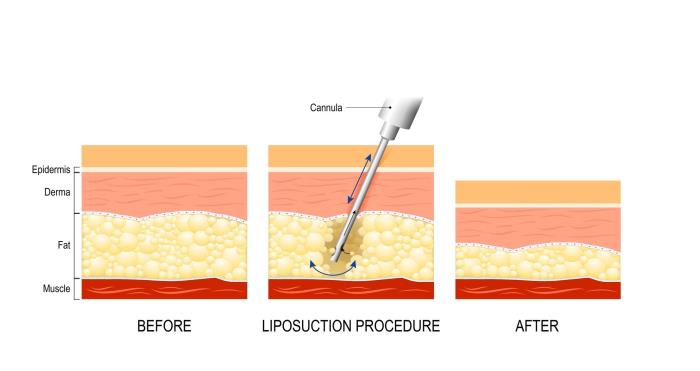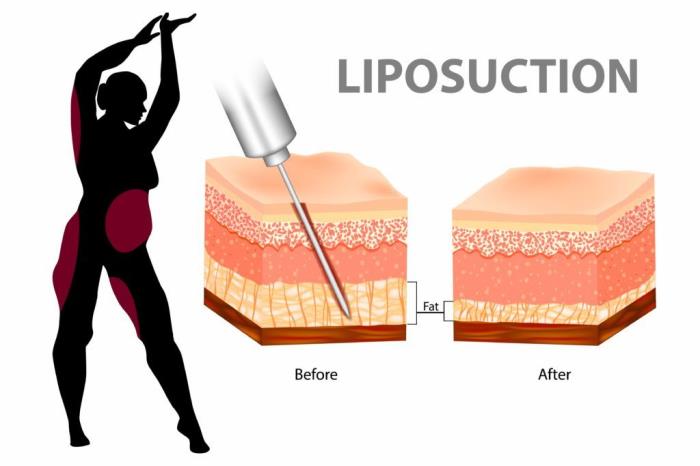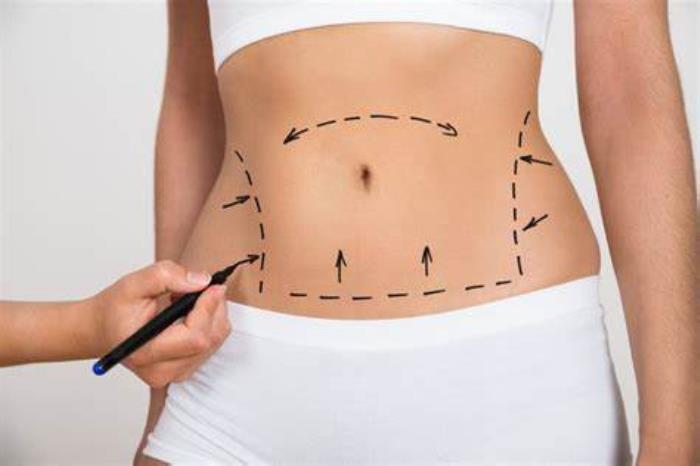Liposuction is a surgical procedure designed to remove stubborn fat deposits that are resistant to diet and exercise. During the procedure, a thin tube called a cannula is inserted through small incisions to suction out fat from targeted areas such as the abdomen, thighs, or arms. Patients can expect some swelling, bruising, and discomfort during the recovery period, which can vary in duration depending on the extent of the procedure and individual healing factors. Typically, patients can return to normal activities within a few days, although strenuous exercise should be avoided for several weeks.
It is important for patients to have realistic expectations regarding their results. While liposuction can significantly improve body contours, it is not a weight-loss solution. Patients should aim to maintain a stable weight and adopt a healthy lifestyle post-procedure to achieve the best long-term results.
The Importance of Preoperative Preparation
Preoperative preparation is crucial for ensuring a successful liposuction experience. This involves several steps, including a thorough medical evaluation to assess any potential risks and discussing the patient's medical history, medications, and allergies with the surgeon. Additionally, patients are often advised to stop smoking and avoid certain medications that can increase bleeding.

Preparing mentally and physically for the procedure can enhance recovery and optimize results. Patients should also arrange for transportation to and from the surgery and have a support system in place to assist them during the initial recovery phase.
Consultation with Your Surgeon: Key Questions to Ask
A consultation with your surgeon is an essential step in the liposuction process. This meeting is an opportunity to discuss your goals, address any concerns, and gain a clear understanding of the procedure. Key questions to ask include inquiries about the surgeon's experience, the specific techniques they will use, and what to expect during recovery.
Understanding the potential risks and complications associated with liposuction is also important. Patients should feel comfortable discussing their medical history and any conditions that might affect the surgery or recovery process.
Assessing Your Candidacy for Liposuction
Assessing candidacy for liposuction involves evaluating a patient's overall health, body weight, and specific areas of concern. Ideal candidates are usually within 30% of their target weight, have elastic skin, and possess realistic expectations regarding the outcome. It is also essential that candidates are committed to maintaining a healthy lifestyle post-surgery to achieve optimal results.
During the consultation, the surgeon will assess the patient's body and discuss their aesthetic goals. Factors such as age, skin quality, and any underlying medical conditions will also be considered when determining candidacy.
Setting Realistic Expectations for Liposuction Results
Setting realistic expectations is critical for patients considering liposuction. While the procedure can lead to significant improvements in body contours, it is not a substitute for weight loss or a solution for loose skin. Patients should understand that the results may vary based on individual factors such as body type, skin elasticity, and overall health.

It is essential for patients to have an open discussion with their surgeon about their desired outcomes and understand what is achievable. Emphasizing the importance of a balanced diet and regular exercise post-procedure can also help maintain the results and promote long-term satisfaction.
How to Optimize Your Body Weight Before Surgery
Optimizing your body weight before surgery is crucial for enhancing surgical outcomes and recovery. Aim for a stable, healthy weight through a balanced diet and regular exercise. Consult your healthcare provider for personalized recommendations, including weight management strategies and realistic goals. A well-maintained weight can reduce complications and improve the effectiveness of the procedure.
Nutrition Tips for Preparing Your Body for Liposuction
Proper nutrition plays a vital role in preparing your body for liposuction. Focus on a diet rich in fruits, vegetables, lean proteins, and whole grains to provide essential nutrients. Incorporate foods high in vitamins C and E to support healing and reduce inflammation. Limiting processed foods, sugar, and saturated fats can also help optimize your health before surgery. Consider consulting a nutritionist for tailored dietary advice.

The Role of Hydration in Preoperative Care
Staying hydrated is essential in the days leading up to your surgery. Proper hydration supports overall health, helps maintain skin elasticity, and can reduce the risk of complications during surgery. Aim to drink plenty of water and avoid excessive caffeine or alcohol, which can lead to dehydration. Adequate hydration also aids in the recovery process, promoting quicker healing.
Medications and Supplements: What to Avoid
Before surgery, it’s important to review your medications and supplements with your healthcare provider. Avoid blood-thinning medications, such as aspirin and certain herbal supplements (like ginkgo biloba and garlic), which can increase bleeding risk during surgery. Following your doctor’s recommendations on medication adjustments can help ensure a safer surgical experience.
The Importance of Quitting Smoking Before Surgery
Quitting smoking is crucial for optimizing surgical outcomes and recovery. Smoking can impair blood flow and oxygen delivery to tissues, increasing the risk of complications such as poor wound healing and infections. Aim to quit at least four weeks before surgery and consult your healthcare provider for resources and support to help with cessation.
Physical Activity: Preparing Your Body Through Exercise
Engaging in regular physical activity in the weeks leading up to your surgery can improve your overall fitness and enhance recovery. Focus on a balanced exercise routine that includes cardiovascular activities, strength training, and flexibility exercises. Consult your healthcare provider for personalized recommendations, especially if you have specific concerns related to your health or surgery.
Skin Care Routine to Enhance Healing Post-Surgery
Establishing a proper skin care routine before surgery can support healing and enhance outcomes. Consider using moisturizers and topical treatments that promote skin health and elasticity. Protecting your skin from sun exposure is also vital; consider using sunscreen daily. Consult with a dermatologist for personalized skincare advice tailored to your needs.
Understanding the Liposuction Procedure: A Brief Overview
Before undergoing liposuction, it’s important to understand the procedure. Liposuction involves the removal of excess fat deposits through a small incision using a suction technique. The procedure can be performed on various body areas, including the abdomen, thighs, and arms. Discuss the specific techniques and expectations with your surgeon to ensure you are well-informed.
Planning for Recovery: What You Need to Know
Planning for recovery is crucial to ensure a smooth healing process. Arrange for assistance at home, especially for the first few days post-surgery, as mobility may be limited. Prepare a comfortable recovery area with essentials readily available, including medications, snacks, and entertainment. Follow your surgeon’s post-operative instructions closely for optimal recovery.
Creating a Support System for Your Recovery
Establishing a strong support system is vital for a successful recovery from liposuction. Communicate with friends and family about your needs and ask for help with daily tasks during your recovery period. Consider joining support groups or online forums for individuals undergoing similar procedures to share experiences and gain encouragement. Having emotional and practical support can significantly enhance your recovery journey.
Creating a Support System for Your Recovery
Building a solid support system is essential for a smooth recovery after liposuction. Inform family and friends about your surgery date and recovery timeline, and ask for help with daily tasks, such as meal preparation and transportation to follow-up appointments. Emotional support is equally important; consider discussing your feelings and expectations with loved ones or joining a support group to connect with others undergoing similar experiences.
Preparing Your Home for Post-Operative Care
Making your home comfortable and accessible can significantly enhance your recovery after liposuction. Ensure that your living space is clutter-free to prevent accidents and falls. Set up a designated recovery area stocked with necessary items like medications, pillows, and a phone charger. Having easy access to healthy snacks and hydration will also help you during your recovery period. Consider arranging your bedroom or living area on the same floor to minimize movement.
What to Pack for Your Liposuction Surgery Day
Packing the right items for your surgery day can help ensure a smooth experience. Essential items to include are your identification, insurance information, and any necessary medical records. Bring comfortable, loose-fitting clothing to wear after the procedure, as well as slippers and a personal item, like a book or music, to help ease any pre-surgery anxiety. Don’t forget to pack any prescribed medications, as well as a recovery pillow to help you stay comfortable during transportation.
Mental Preparation: Coping with Surgery Anxiety
It's normal to feel anxious before surgery, but mental preparation can help ease your nerves. Practice relaxation techniques such as deep breathing, meditation, or visualization to calm your mind. Educate yourself about the procedure to demystify the experience and boost your confidence. Talking to your surgeon about any concerns can also provide reassurance. Engaging in positive self-talk and focusing on your recovery goals can help shift your mindset in a positive direction.
Following Preoperative Instructions: Why It Matters
Adhering to your surgeon’s preoperative instructions is crucial for a successful outcome. These guidelines may include dietary restrictions, medication adjustments, and lifestyle modifications leading up to your surgery. Following these instructions helps minimize risks, reduces the chance of complications, and ensures your body is in optimal condition for the procedure. Communicate openly with your healthcare team if you have any questions or concerns about the preoperative process.
The Effect of Liposuction on Cellulite
Explore how liposuction impacts cellulite, and understand the results and limitations regarding treating this common concern. While liposuction can remove fat deposits, it may not effectively reduce the appearance of cellulite, highlighting the importance of managing expectations and considering alternative treatments.
Exploring Non-Surgical Alternatives to Liposuction
Learn about non-surgical options available for body contouring, such as cool sculpting, ultrasound therapy, and radiofrequency treatments. These methods can provide effective fat reduction with minimal downtime, making them appealing choices for those seeking less invasive procedures.
Best Liposuction Treatment in India
The Best Liposuction Treatment in India is performed by expert surgeons who utilize advanced techniques to ensure optimal outcomes for patients, offering a personalized treatment plan tailored to individual health needs.
Best Liposuction Hospitals in India
The Best Liposuction Hospitals in India are equipped with cutting-edge technology and facilities, providing top-notch care, including pre-surgery consultations, surgical expertise, and post-operative recovery support to ensure a smooth patient journey.
Liposuction Cost in India
When considering the Liposuction Cost in India, patients benefit from affordable and transparent pricing at leading hospitals, which offer cost-effective treatment options without compromising the quality of care.
Best Liposuction Doctors in India
The Best Liposuction Doctors in India are highly experienced in performing the surgery, utilizing a patient-centric approach that ensures personalized care, precise surgical techniques, and dedicated follow-up care to enhance recovery.
FAQs About Preparing for Liposuction
What should I do in the weeks leading up to my surgery?
Focus on maintaining a healthy lifestyle, including proper nutrition and exercise, while following your surgeon's preoperative instructions.
How can I manage anxiety before surgery?
Engage in relaxation techniques, talk to your surgeon about your concerns, and consider reaching out to friends or support groups for encouragement.
What items should I have at home for recovery?
Prepare a comfortable recovery area with essentials like medications, snacks, pillows, and entertainment options easily accessible.
How can I create a support system?
Inform family and friends about your surgery and enlist their help with daily tasks during your recovery period to ease the burden.
What happens if I don’t follow preoperative instructions?
Not following instructions can increase the risk of complications during and after surgery, potentially impacting your recovery and results.